- Home
- Iain Banks
Complicity Page 3
Complicity Read online
Page 3
I sit in the car for a while, tinkering with the whisky article I've been working on for a while and wondering who or what Ares is. A few people use the phone box. I play some rather pathetic low-level games on the Tosh, wishing I had a decent colour machine with the speed and the RAM and the hard disk to run Despot. I roll a joint and smoke that, listening to the radio and then to my k.d.lang tape but it's too soporific and I turn the radio on but it's too inane so I scrabble in the glove-box until I find Trompe le Monde by the Pixies and that keeps me awake better than speed though the tape's stretched a bit because I've played it so much and so the sound comes and goes a bit but that's cool.
I'm running through the woods at Strathspeld, on a bright summer's day; I'm thirteen years old and while I'm running I'm also looking at myself from outside, as though I'm watching all this on a screen. I've been here many times before and I know how to turn away from this place, I know how to escape from it. I'm just about to do that when I hear a bell.
I wake up and the phone is ringing. It takes me a second to realise I've been asleep, and another second to remember where I am. I leap out of the car and into the box, just ahead of an old man walking his dog.
"Who is that?" says the voice.
"Cameron Colley again, Mr Archer. Look —»
"There is one other person who knows about the ones who died, Mr Colley: the go-between. I do not know his real name yet. When I find out I will tell you."
"What —?"
"His code-name is Jemmel. I will spell that for you," the Stephen Hawking voice says. It does so.
"Got that, Mr Archer, but who —?"
"Goodbye, Mr Colley. Take care."
"Mr-!"
But Mr Archer rings off.
"Shit!" I shout. I forgot to record the call, too.
I sit in the car for a while, entering the name Jemmel into the Tosh. It means nothing to me.
I head back to the hotel for a piss and a last drink, another double: one for the road now that the first one's probably out of my system. I haven't eaten since this morning but I don't feel hungry. I force myself to eat some dried peanuts and have a half of Murphy's to wash them down and for the iron. (I used to drink Guinness but I've been boycotting the stuff since those bastards lied about moving their HQ to Scotland.)
In the car I suck a little speed (purely in the interests of road safety — it'll keep me awake), then smoke a joint as I drive away, just to keep things balanced. There's a Radio Scotland programme on at midnight which sometimes does a Tomorrow's Headlines bit right at the end; I listen to it and sure enough they mention our headline tomorrow, but we're leading with the manoeuvring in the Tory party on the run-up to the Maastricht vote. I feel let down, but then they mention that the photograph on our front page is of the Vanguard arriving at Faslane, so I know my story's there, and with any luck at all it'll be alongside the photo on the front page, rather than buried inside. I experience a modest thrill of news-fix; a dose of journo-buzz.
This is a kind of hit unique to the profession: near-instant in-print gratification. I suppose if you're a stand-up comic, a live musician or an actor the reward is similar and even quicker, but if what you're into is the printed word and the dubious authority of on-the-page black-and-white, then this is entirely the biz. The best fix of all comes from a front-page splash, but a page lead on an odd-numbered page provides a pretty sublime high, and only getting a basement piece on an even page produces any sensation of let-down.
I have another joint to celebrate but it makes me a little drowsy and it takes a definitely-last-of-the-night micro-lick of speed and another fix of Trompe le Monde to even things up again.
CHAPTER 2 — CHILL FILTER
I'm very tempted to call in at the paper and pick up a copy fresh off the presses, which will be rumbling away now, shaking the whole building. The smell of ink and the greasy feel of the print always powerfully reinforce the news-fix buzz, plus I'd like to check my Vanguard story to see what violence the sub-editors have succeeded in inflicting on it; but as I drive down Nicolson Street suddenly the idea of subs cutting a story about a sub seems wildly amusing and I find myself giggling uncontrollably, making me sniff and sneeze and bringing tears to my eyes. I decide that I'm too wasted to be able to put on a sober face for the print-room boys, so I head home instead.
I get back to Cheyne Street about one o'clock and have the usual enforced tour of Stockbridge By Night looking for a parking place before finding one only a minute from the flat. I'm tired but not sleepy so I have a nightcap spliff and a two-fingers of Tesco's single malt. During the next couple of hours I listen to the radio and watch all-night TV out of the corner of my eye and tinker with the whisky story on the PC and then deliberately do not play Despot because I know I'd only go and get involved and be up until dawn and sleep all day and not be up in time for tomorrow's job (I have an appointment with a distillery manager at noon), so instead I go back to Xerium and play that; recreational play in other words, not serious stuff; a game to wind down to, not get wound up by.
Xerium is an old favourite, almost like a pal, and even though there are still a few bits of it I haven't cracked I've never looked for hints or cheats in the magazines because I want to get there myself (which isn't like me) and anyway it's fun just flying around and adding to the map you gradually build up of the island continent the game's set on.
Finally I crash the good ship Speculator trying — as usual — to find a probably non-existent route between the peaks of the Mountains of Zound. I swear I've tried every gap in those damn hills — hell, I've even tried flying straight through the mountains, thinking one of them is supposed to be a hologram or something — but I crash every time; there just doesn't seem to be any way of getting through or of gaining enough height to fly over the damn things. There is supposed to be a way into the rectangular territory the mountains enclose somehow, but I'm fucked if I can work out what it is, not tonight, anyway.
I pass on another attempt and load the slower of my two Asteroids programs and obliterate a few zillion rocks in glorious wire-frame monochrome until my fingers ache and my eyes are smarting again and it's time for some decaff and bed.
I get up bright and fresh and — after a good five-minute cough and a shower — the only wake-me-up I have is some freshly ground Arabica. I munch some muesli and suck on a quartered orange while I look through the whisky story, which is due in today so this is really my final chance to work on it apart from any last-minute thoughts after seeing the distillery at lunch-time. I sneak a look at my current status in Despot, too, but resist firing the program up. I stare accusingly at the Tosh's NiCads, which I forgot to charge up last night, then transfer the tinkered-with whisky article to disk and search out some clean clothes from the pile on one side of the bed where I dumped them after last week's laundry run. Leaving the clothes on the bed can sometimes make you think there's somebody in there with you when there isn't, which can be comforting but is distinctly sad; you haven't had a fuck for well over a week, this pile of clean clothes on the duvet is telling me. Still, I'm seeing Y in a couple of days so even if nothing else turns up there's always that to look forward to.
There's some mail: junk and bills, mostly. Ignore for now.
Take the bleeper, mobile, Tosh, NiCads and slot-in radio down to the 205; the car has not been broken into or scratched (helps not to wash the Pug). Set the NiCads charging from the cigarette lighter. Take off into a cool blue-whiter; sunshine and clouds. Stop along the road for papers; scan headlines, make sure that no late-breaking story displaced the Vanguard piece and that it's intact (ninety-five per cent — a satisfyingly high score), check out Doonesbury in the Grauniad, then away.
Over the road-bridge and fast through Fife; once up to cruising speed — needle in that 85-to-90 region the jam-sandwich boys ignore unless they're particularly bored or in a really bad mood — steer with knees while rolling spliff, feeling good in a childish way and laughing at myself and thinking, Don't try doing this at home, kids. Lea
ve number aside to smoke later; turn left at Perth.
The drive to the distillery takes me along part of the route to Strathspeld. I haven't been to see the Goulds for so long and I half wish I'd started out earlier so I could drop in, but I know it isn't really them I want to see, it's the place: Strathspeld itself, our long-lost paradise with all the aching, poison-sweet memories it holds. Though of course maybe it's Andy I really remember and miss; maybe I just want to see my old soul-mate, my surrogate brother, my other me; maybe I'd go straight there if he was at home, but he isn't, he's way far north and being reclusive and I must visit him too, someday.
I pass through Gilmerton, a wee village just outside Crieff, where I'd turn off for Strathspeld if I was heading that way. Used to be there was a collection of three identical little blue Fiat 126s sitting facing the road here outside one of the houses; they were there for years and years and I always meant to stop off here and find the owner and ask him, Why have you had these three little blue Fiat 126s sitting outside your house for the last decade? because I wanted to know and besides it might have made a decent story and over the years there must have been millions of people who've passed this way and wondered the same thing, but I never did get around to it; always in a hurry, rushing past, anxious to get to the tainted paradise that Strathspeld's always been to me… Anyway, the three little blue Fiat 126s disappeared recently so there's no point. Guy seems to be collecting transit vans these days. I felt hurt, almost grieved when I first saw that house without the three little cars outside; it was like a death in the family, like some distant but friendly uncle had copped it.
I play some old stuff from Uncle Warren for the same nostalgic reasons I came this way.
Deep in the glens at Lix Toll there's another automotive roadside attraction standing outside the garage there; a bright yellow Land Rover about ten foot tall facing the road, not on wheels but on four black triangular tracks like the bastard cross of a Landy and a Caterpillar earth-mover. Been there a few years now. Leave it another few and I might go in and ask them, Why have you —?
Sweep past, in a hurry.
The distillery is just outside Dorluinan, hidden in the trees off the Oban road, across the rail line and up a narrow lane through the forest. The manager is a Mr Baine; I go to his office and we do the usual distillery tour, through the damp, half-enticing smells and the kiln heat and past the gleaming stills, past the gushing glass cupboard of the spirit safe until we end up in the chill darkness of one of the warehouses, standing looking out over rows of broad-backed barrels, gloomily lit from above few small, grimy armoured skylights. The roof is low, supported by thick, gnarled wooden struts resting on widely spaced iron columns. The floor is compacted earth, hard as concrete after a centuries of use.
Mr Baine looks worried when I tell him about the article. He's a bulky, droopy-faced highlander in a dark suit with a Technicolor tie that makes me glad I'm facing him here in the soft darkness of the warehouse, not outside in the sunlight.
"Well, basically just the facts," I'm saying, grinning at Mr Baine. "That back in the "twenties the Yanks objected to their whisky and brandy going cloudy when they added ice to it, so they told the distillers to fix what they regarded as a problem. The French, being the French, told them what to do with their ice cubes, while the Scots, being British, said, Certainly, here's what we'll do…"
Mr Baine's wounded-spaniel looks take on an extra tier of unhappiness as I tell him all this. I know I shouldn't have taken that micro-lick of powder while we were going through earlier, but I couldn't resist it; there was an irresistibly appealing getting-away-with-it promissory glee about sticking my finger in my mouth, then my pocket, then my mouth again and as Mr Baine talked and I looked interested while my tongue went numb and the chemical taste thickened in my throat and this firingly, chargingly addictive illegal drug did its business while we walked round this perfectly legal, government-financing drug facto
So I'm gibbering but it's good.
"But, Mr Colley —»
"So the distillers brought in chill-filtering, lowering the the temperature of the whisky until the oils that cause the cloudiness come out of solution and then straining the stuff through asbestos to remove the oil; only that removes a lot of the taste as well — which you can't put back — and the colour, which you can put back, using caramel. Isn't that right?"
Mr Baine has a hangdog look. "Ah, well, broadly," he says, clearing his throat and looking out over the ordered sea of barrel-backs disappearing into the gloom. "But, ah, is this going to be, um, a what-do-you-call-it? An expose, Mr Colley? I thought you just wanted —?"
"You thought I just wanted to do yet another article on what a grand, beautiful country we live in and how lucky we are to produce this world-renowned, dollar-earning drink and isn't it life-enhancing used in moderation and just generally great?"
"Well, well… it's up to you what you write, Mr Colley," Mr Baine says (I have raised a smile). "But, ah, I feel you might be misleading people by emphasising things like, well the asbestos, for example; people might think there's asbestos in the product."
I look at Mr Baine. Product? Did I hear him say product?
"But I'm not going to be suggesting that at all, Mr Baine; this will be a straight, factual article."
"Aye, aye, but facts can be misleading out of context."
"Uh-huh."
"You see, I'm not sure about the tone —»
"But, Mr Baine, I thought you were in sympathy with the tone of this article. That's why I'm here today; I was told you're thinking about producing a "real whisky", with no chill-filtering and no colouring; a premium brand, using the cloudiness and the oils that are left in as a selling point, basing the ads on it, even —»
"Well," Mr Baine says, looking uncomfortable, "the marketing people are still looking into that —»
"Mr Baine, come on, we both know the demand's there; the SMWS does a roaring trade, Caddenhead's shop in the Royal Mile —»
"Well, it's not that simple," Mr Baine says, looking even more uncomfortable now. "Look, Mr Colley, can we talk, you know, without you reporting it?"
"You want to talk off the record?"
"Aye; off the record."
"All right." I nod. Mr Baine clasps his hands under his suit-clad belly and nods in a serious manner. "Look, ah, Cameron," he says, dropping his voice, "I'll be honest with you: we have thought about test-marketing this premium brand you're talking about, and using the lack of chill-filtering as a Unique Selling Point, but… You see, Cameron, we couldn't survive on that alone, even if it did work, not for the foreseeable future at any rate; we've got other considerations to take into account. We'll probably always have to sell the vast majority of our product for blending; that's our business, that's our livelihood, and as such we rely on the goodwill of the firms we sell to; firms much, much larger than we are."
"You're saying you've been told not to rock the boat."
"No no no." Mr Baine looks distressed at being imperfectly understood. "But you have to realise that a great deal of the success of whisky has to do with its mystique, the… the image the customer has of it as a unique, high-value product. It's almost mythical, Cameron; it's the uisgebeatha, the water of life, as they say… It's a very strong image, and a very important one for the Scottish export drive and national economy. If we — as, frankly, a very junior player in all this — do anything that conflicts with that image —»
"Such as putting the idea into the public's head that all the other whiskies they can buy are chill-filtered and/or caramel-coloured —»
"Well, yes —»
"— then you'll rock the boat," I say. "So you've been told to shelve the new premium brand or forget about ever selling whisky for blending again, and so going out of business."
"No no no," Mr Baine says again, but as we stand there in the chilly gloom of the spirit-fragrant warehouse, surrounded by enough maturing hootch to float a Trident submarine, I can see that the real answer even off the record is yes y
es yes, and I'm thinking, Yay! A conspiracy; a cover-up, arm-twisting, blackmail, corporate pressure on the little guy; this could be an even better story!
You enter through the back door using a crowbar; the door and the lock are both heavy, but the frame has rotted beneath its layers of paint over the years. As soon as you're in you take the Elvis Presley mask from your day-pack and slip it on, then pull the surgeon's gloves from your pocket and snap those on too. The house feels warm from the afternoon; it faces south and has an uninterrupted view out over the links of the golf course towards the estuary, so it catches a lot of sun.
You don't think there's anybody in yet but you aren't sure; there wasn't time to watch the place all day. It feels and somehow sounds empty. You slip from room to room, feeling sweaty beneath the slick latex of the mask. The late evening sun has turned the faint, high clouds over the sea pink and the light falls into every room, filling them with rose and shadows.
The stairs and a lot of the floorboards creak. The rooms look clean but the furniture is old-fashioned and mismatched; cast-off. You satisfy yourself there's nobody in, ending up in the main bedroom of the house.
You're not very happy with the bed; it's a divan. You inspect it, in that reddening gloaming, then heave the mattress off, leaving it propped against the wall. Still no good. You go through to the other front bedroom, which also looks out over the course and the sea; the room smells unlived-in, even slightly damp. This bed is better; this one has an iron frame. You pull the bedding off and start to tear the sheets into strips.
You look out of the window as you do this, watching a couple of military jets over the sea in the distance. To the right, beyond the railway line, you can see the curve of beach leading out to the wooded point, and catch a glimpse of the lighthouse there, rising above the trees.

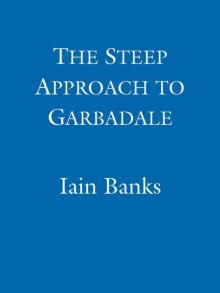 The Steep Approach to Garbadale
The Steep Approach to Garbadale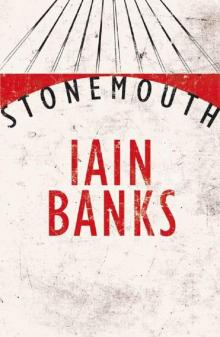 Stonemouth
Stonemouth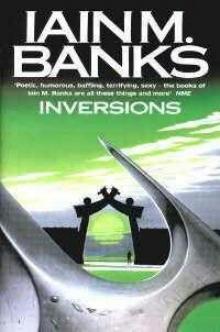 Inversions c-6
Inversions c-6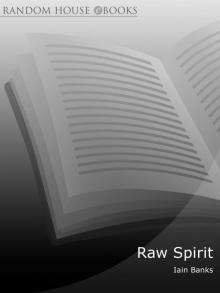 Raw Spirit: In Search of the Perfect Dram
Raw Spirit: In Search of the Perfect Dram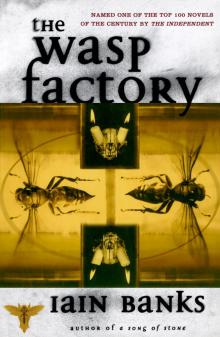 The Wasp Factory
The Wasp Factory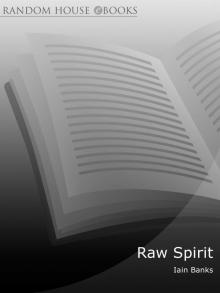 Raw Spirit
Raw Spirit Walking on Glass
Walking on Glass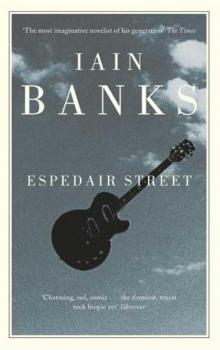 Espedair Street
Espedair Street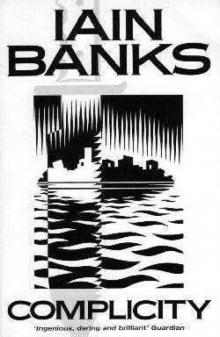 Complicity
Complicity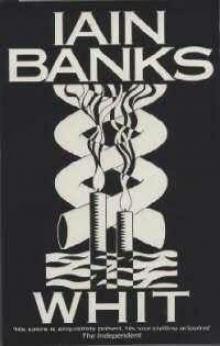 Whit
Whit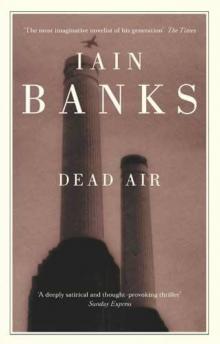 Dead Air
Dead Air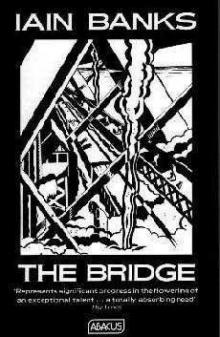 The Bridge
The Bridge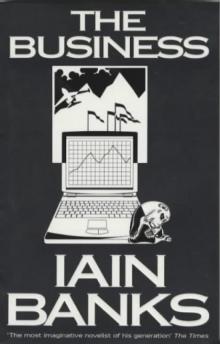 The Business
The Business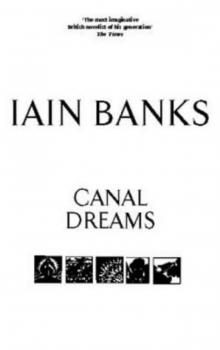 Canal Dreams
Canal Dreams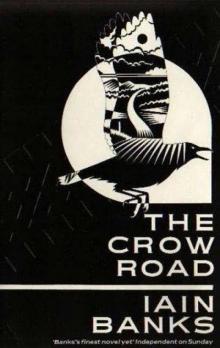 The Crow Road
The Crow Road